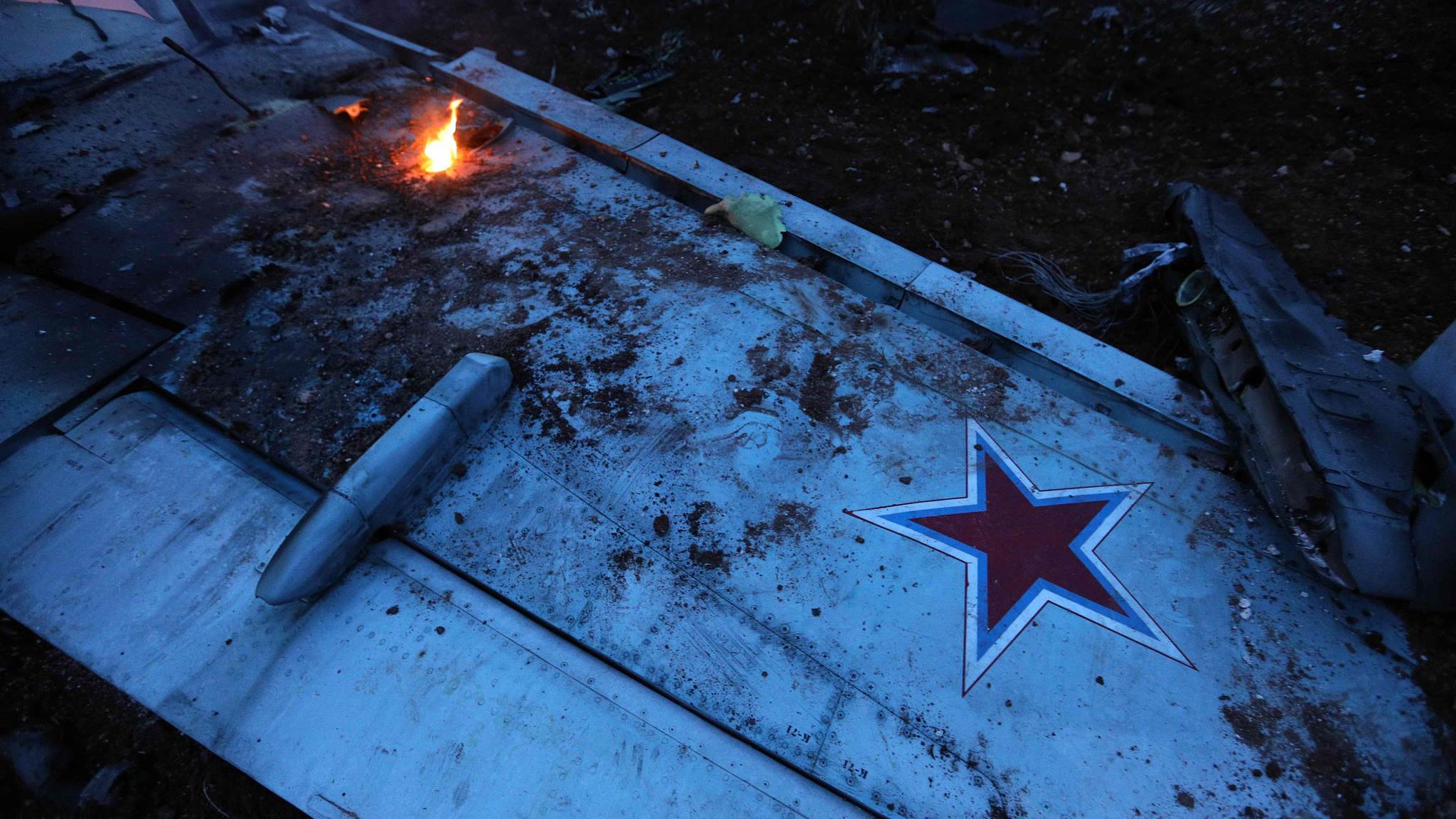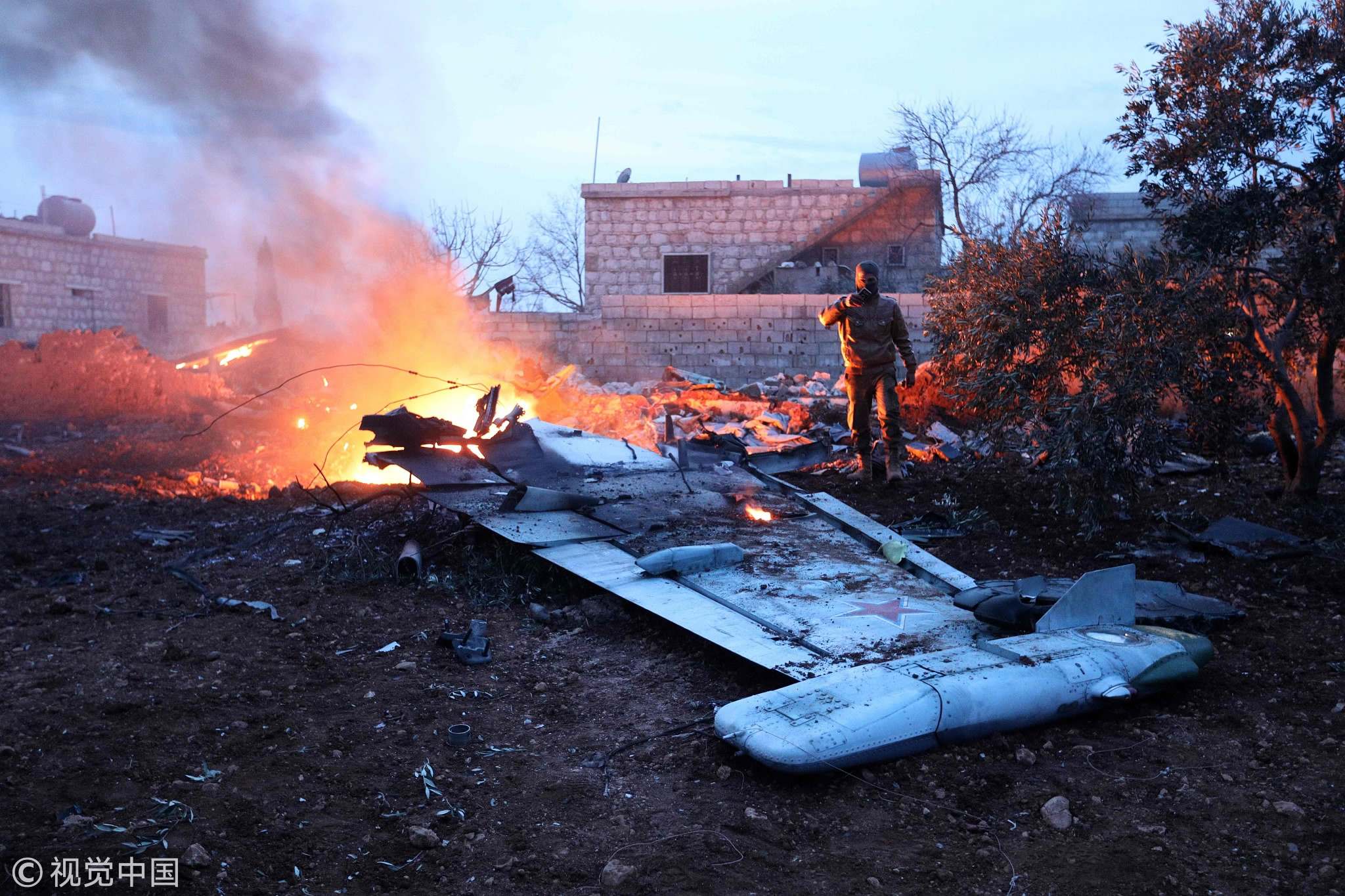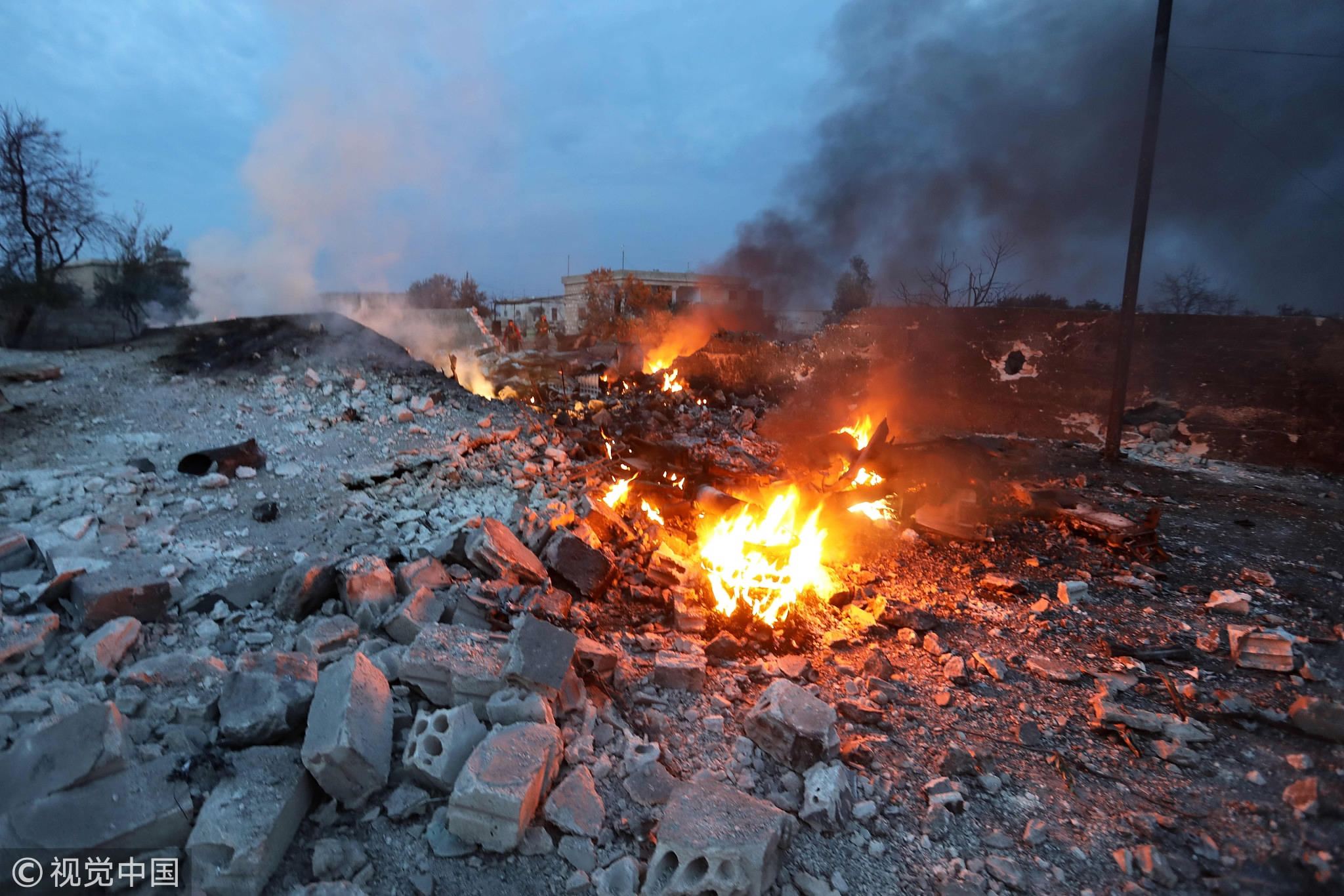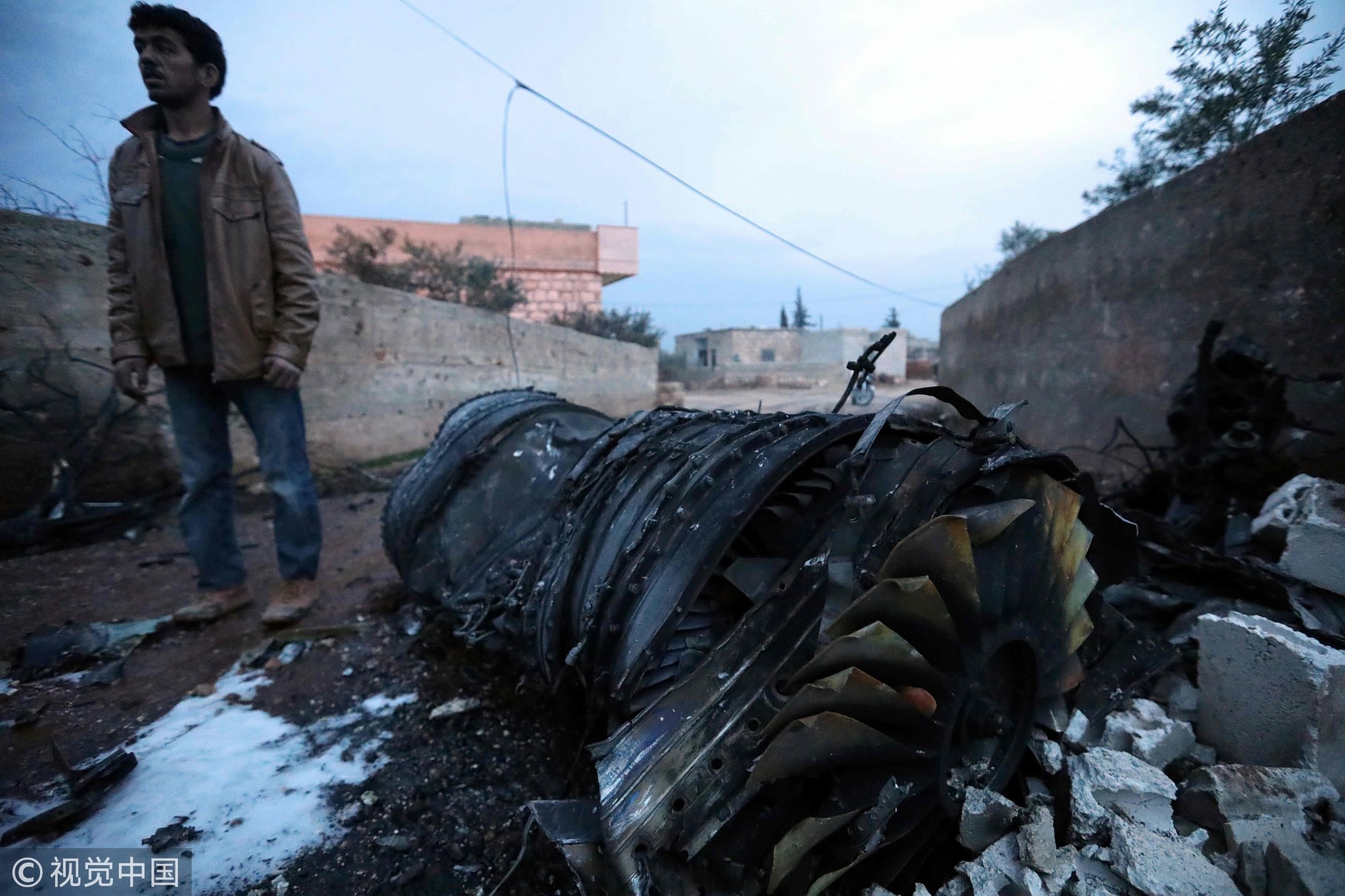
Opinions
22:56, 04-Feb-2018
Opinion: Downed warplane complicates Russia-Turkey relation
Guest commentary by Wang Jin

Syrian rebels have shot down a Russian warplane in Idlib, northwest province of Syria, on Saturday. The Russian warplane was hit by man-carried portable air defense missile and the pilot was killed by rebels after he escaped using the plane's ejection seat.
According to a statement released by Russian defense ministry, the pilot was killed in the area controlled by militants of the Tahrir al-Sham (Front for Liberating the Levant), which has special relation with Al-Qaeda.
Idlib province was designated one of the four deescalation zones during peace negotiations last year in Astana, Kazakhstan led by Russia, Turkey and Iran, aimed at ending the Syrian civil war. The agreement divided Idlib into three areas: The first one, east of the railroad, will be cleared of armed groups and put under Russian supervision as a demilitarized zone. Civilian administration here will be by local councils. West of the railroad will be under Turkish observation. The area between the railroad and a major highway will also be under Turkish control from west of the road to the Turkish border.

A rebel fighter taking a picture of the downed Sukhoi-25 fighter jet in Syria's northwest province of Idlib on February 3, 2018 / VCG Photo
A rebel fighter taking a picture of the downed Sukhoi-25 fighter jet in Syria's northwest province of Idlib on February 3, 2018 / VCG Photo
Groups supported by Turkey will settle in the third area until a political settlement is reached. The midsection between the railroad and the highway is called the second area. Al-Qaeda-linked Tahrir al-Sham -- which is not participating in the cease-fire -- will be confined to this part.
It is a remarkable fact that it is the second time that Russian military personnel are under attack by Syrian rebels within two months. On the last day of 2017, Tahrir al-Sham militants from Idlib attacked Russia air force base in Syria with mortar shelling. Russia and Syria government forces responded by launching a series of military attacks with both air force bombardment and army offensive on the ground.
The offensives launched by Russia and Syria government forces in early January strained their relations with Turkey, with Turkey summoning the Russian ambassador to Ankara several times to show its protest. The relation between Russia and Turkey normalized only after a series of urgent talks between the two countries' military seniors.

Smoke billows from the site of a downed Sukhoi-25 fighter jet in Syria's northwest province of Idlib on February 3, 2018. /VCG Photo
Smoke billows from the site of a downed Sukhoi-25 fighter jet in Syria's northwest province of Idlib on February 3, 2018. /VCG Photo
After its warplane was downed on Saturday, Russia retaliated by launching a series of air attacks in the area. What's thorny is that Turkey still views Idlib province, or the large area west of Euphrates River in Northern Syria, as Turkey’s “backyard” and some militant groups defined by international society as “terrorist groups,” such as Tahrir al-Sham, still find shelters in Idlib.
For Turkey, its “first priority” is to launch military offensives against Afrin in Northern Syria held by the Syrian Kurdish Democratic Union Party (PYD), which is seen by Turkey as the branch of “terrorist group” Kurdish Workers Party (PKK) in Syria. Meanwhile, Turkey defines Idlib as an important base for Syria rebels such as Tahrir al-Sham and Free Syria Army, especially given the fact that Turkey still upholds the principle of “Assad must leave” in the negotiation table over Syria’s future political reconstruction.

A Syrian man stands next to a burnt jet engine at the site of a downed Sukhoi-25 fighter jet in Syria's northwest province of Idlib on February 3, 2018. /VCG Photo
A Syrian man stands next to a burnt jet engine at the site of a downed Sukhoi-25 fighter jet in Syria's northwest province of Idlib on February 3, 2018. /VCG Photo
Russia’s military retaliation in Idlib might complicate the situation and its relation with Turkey.
(Wang Jin is a PhD Candidate at School of Political Science in University Haifa,and also a Research Fellow at Syria Research Center in Northwest University. The article reflects the author’s opinion, and not necessarily the views of CGTN.)

SITEMAP
Copyright © 2018 CGTN. Beijing ICP prepared NO.16065310-3
Copyright © 2018 CGTN. Beijing ICP prepared NO.16065310-3